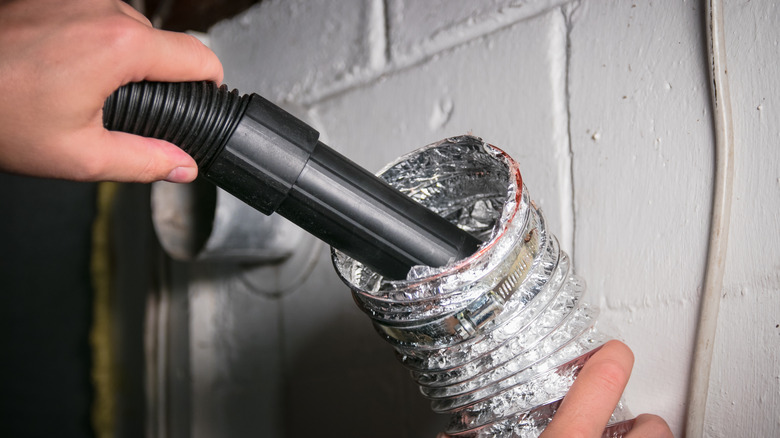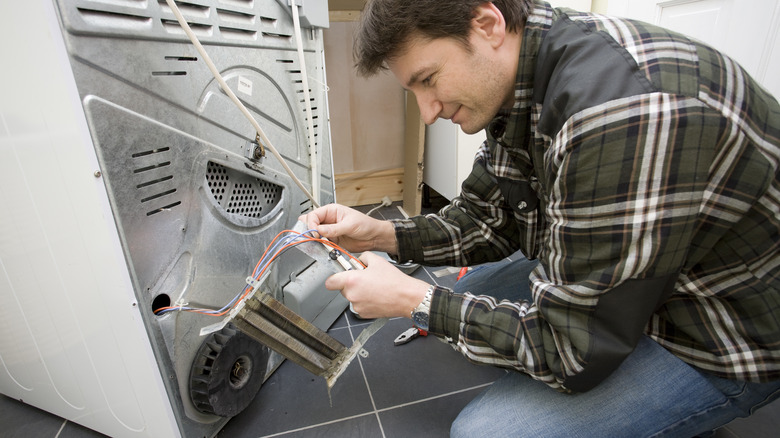Check These Things If Your Dryer Is Not Heating Properly
If you need your clothes dried quickly, it can be frustrating to discover that your dryer isn't heating your clothes quickly enough — or at all. If this is the case, there's probably a problem with your dryer that you need to figure out fast. Contrary to what you might think, you don't need to immediately go buy a brand-new dryer if you experience heating problems. According to HomeGuide, new dryers cost an average of $800 to $1,200, so you'll probably want to avoid buying a new one unless it's absolutely necessary.
Fixing your heating problems may not even require a major repair. There are several simple problems to check for that you may be able to deal with in a relatively short time frame. Taking steps to examine various dryer components, checking for electrical or gas issues, and clearing any possible blockages are just a few of the ways that you can potentially resolve dryer heating issues and start drying your clothes in record time once again.
Other potential dryer issues to consider
The first thing you don't want to forget is to check whether your dryer vent is blocked or obstructed in some way. If it's blocked, your thermostat may shut down, and your dryer may fail to heat. If necessary, go ahead and look for signs you need to clean your dryer vent and use a vacuum to clean it.
If your clothes are especially wet when you place them in the dryer, your dryer may not dry them quickly. Be sure that you understand all the laundry machine settings and let a spin cycle run completely in the washer before attempting to dry them. If they're too wet, moisture and humidity can also build up in the machine, causing mechanical issues and making it even more difficult for them to dry. Another thing to check is that you're not adding too many clothes to the dryer at once. If you overload the dryer, it will heat much more slowly, and the clothes will obstruct the airflow needed to dry clothes properly.
The electrical and gas problems to check for
If your dryer has electrical problems or lacks power, then it won't do its job properly. An electric dryer will use 240 volts of power that comes from two different 120-volt lines. Your dryer won't get heat if only one of them is doing its job. To dry your clothes successfully, make sure that the breaker is turned on and that the dryer is getting the voltage it needs. If in doubt, hire an electrician to take a closer look. If you have a gas dryer, you'll need to check that it's getting enough gas and that the gas valve isn't closed. You may need to learn how to tell if you have a gas or electric dryer before following these steps.
In addition to these issues, your dryer could have blown a thermal fuse. These fuses help prevent fire hazards by shutting down the dryer if the temperature is too high. Your dryer's thermal fuse could be malfunctioning and disabling heat when it shouldn't be. The heating element in the dryer might also be damaged in some way. In both of these cases, it's best to hire a professional to take a look at your dryer and find the root of the problem.


